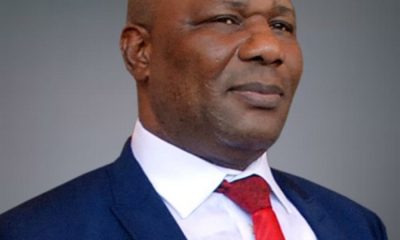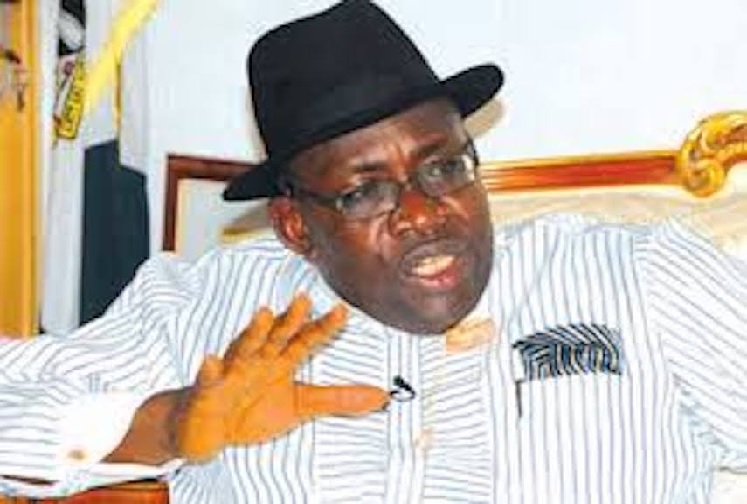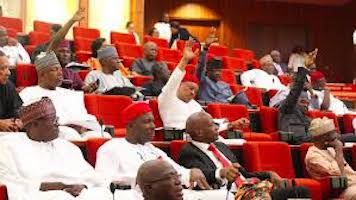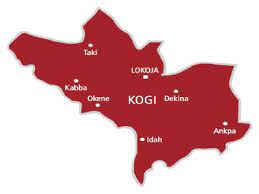Education
Stakeholders Advocate 20 Percent Education Allocation, Demand Effective Utilisation

Stakeholders in the education sector have reiterated the need to allocate 20 per cent of the national budget to education, while also ensuring full implementation of the allocation.
The National Moderator, Civil Society Action Coalition on Education for All (CSACEFA), Mr Duke Ogbureke, said this at the 2023 Global Action Week for Education (GAWE23) in Abuja on Tuesday.
The GAWE23, a Civil Society Dialogue Workshop with the theme: ‘Invest in a Just World: Decolonise Education Financing Now, is aimed at setting the education agenda for the new administration.
Ogbureke said that for development to take place, there was need for the government to budget adequately for education to hit at least the minimum benchmark of 20 per cent of the national budget.
” Our case is peculiar because we have close to 20 million out-of-school children, so you will agree with me that even the benchmark of 20 per cent of the budgetary allocation to finance education will not be sufficient for us.
”This is because already we have the challenge of bringing in the 20milliom out-of-school children into school. So to do that we have to even go beyond the minimum benchmark.
”CSACEFA believe that we have enough resources in the country if our leaders will demonstrate enough political will through effectively and efficiently utilisation of budgetary allocation.
”If 20 per cent is provided, it must be effectively and efficiently used to finance education across all levels so that Nigerian youths can compete effectively with their global counterparts,” he said.
Ogbureke said historically, the budget allocated to education could not improve the sector, hence the need to allocate 20 per cent of the budget to education while also ensuring its utilisation.
He, therefore, charged civil society organisations to hold government accountable in the effective use of budget released for education so that the effect would be felt at all levels.
On the recent students loan signed into law by President Bola Tinubu, he commended the initiative while calling for its adequate implementation so that indigent Nigerians would have access to the loan.
”My challenge with the students loan is in the implementation. If it is effectively, efficiently, transparently and accountably implemented, I believe it would to some extent meet the needs of some indigent students who are members of our population.
” I am hoping that the system will be transparent and monitored so that those who truly needs the loan can access it,” he added.
Also, the Executive Director, Centre for Leadership, Strategy and Development, Dr Otive Igbuzor, said the issues of out-of-school children must be addressed through adequate funding.
Igbuzor, speaking on the Nigeria Education Financing and the Concept of Colonisation of Education Financing, said that budgetary allocation to education was poor when compared to other countries.
He, however, said that to get it right in the area of education, the government must give a modern functional transformative education to its citizens that would yield development.
Meanwhile, the Chief Executive Officer, Youthhub Africa, Mr Rotimi Olawale, urged the government to ensure that certain percentage from savings from fuel subsidy removal be allocated to education financing.
Olawale said that investment in education as well as the responsibility of education financing lied with the government, while also charging the CSOs to find critical ways to help government in education financing.
In the same vein, the Secretary General, National Union of Teachers (NUT), Dr Mike Ene called for teachers training, especially from the employment level of the teachers, saying doing this would translate to competition in the system.
Ene, represented by the NUT Gender Desk Officer, Mrs Salamatu Aliu, also said that the best students should be sent to the Colleges of Education (COE) so they would come out to be better teachers.
According to her, often times, students who could not get admissions into the universities sought for the last option of colleges of education which is not right.
”There cannot be development in Nigeria if education is not taken proper care of.
”The best students in the Unified Tertiary Matriculation Examination (UTME) should be sent to the teachers training schools so as to impact the sector but the reverse is what we see,” he said.
The Policy Advisor, CSACEFA, Mrs Odinakachi Ahanonu said that campaigning for the right to education with an opportunity to make targeted efforts to achieve change would transform the sector.(NAN)
Education
FG vows full WAEC CBT shift by 2026 – Minister

The Minister of Education, Dr Tunji Alausa, has reaffirmed the Federal Government’s commitment to fully transitioning to Computer-Based Test (CBT) examinations for the West African Examinations Council (WAEC) and other exam bodies by 2026.
Dr Alausa made this known while monitoring the conduct of WAEC’s CBT examinations in Abuja on Wednesday.
He expressed optimism about Nigeria’s capacity to modernise its examination system and reduce widespread malpractice through digital innovation.
Commending WAEC’s initiative, the minister described the shift from traditional pen-and-paper exams to CBT as a historic and crucial step toward fairness and educational integrity.
“We are working very hard to eliminate fraud in our exam system, and WAEC is taking the lead,” he said.
Highlighting the advantages of CBT, Alausa noted that the system simplified the exam process while significantly curbing cheating.
“We now have clear evidence that when exams are done using technology, the level of fraud is minimised to almost zero,” he stated.
He further lauded WAEC’s internal safeguards, explaining that the CBT system was operated via a secured Local Area Network (LAN), making it “literally impossible” to hack.
According to the minister, by Nov. 2025, all WAEC multiple-choice exams will be conducted using CBT.
He added that essay questions and NECO examinations would follow suit by 2026.
On infrastructure and logistics, particularly in remote areas, Alausa acknowledged the challenges but assured that scalable solutions are in progress.
“Are we going to be ready to provide every single needed infrastructure by November? Absolutely not.
“But as we move into the future, we will be ready. We have to challenge ourselves as government,” he said.
He also addressed concerns over the logistics of conducting multiple exams.
“In WAEC, the average student takes about eight to nine papers.
“They do it over several days. Those are the logistics we, as administrators, have to work through, and we already are,” he explained.
The ongoing WAEC exams, which began on April 24, are scheduled to conclude on June 20, 2025.
A total of 1,973,253 candidates from 23,554 schools are participating. Of this number, 979,228 candidates are male, accounting for 49.63 per cent, while 994,025 candidates are female, making up 50.37 per cent.(NAN)
Education
We will Capture Out-of-school Children in Our Education Programmes – Enugu Govt
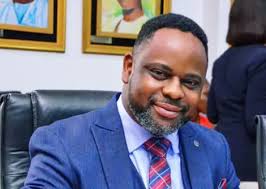
The Enugu State Commissioner for Education, Prof Ndubueze Mbah We will Capture Out-of-school Children in Our Education Programmes – Enugu Govt says the state government will redouble efforts to capture out-of-school children in its programme.
The commissioner gave the assurance on Tuesday in Enugu during the celebration of the 2025 Children’s Day held at the Nnamdi Azikiwe Stadium, Enugu.
Mbah said that the state was working in collaboration with community and faith- based institutions to ensure that no child was neglected or forgotten.
He encouraged them to be calm as they were not forgotten noting that they would be remembered through inclusive education programmes.
Mbah said that education was their right adding that the present administration was committed to making it a reality for them.
He, however, said that every child irrespective of status, gender, location or ability was valued and their welfare would be taken into consideration.
He said that they deserved to grow in a safe, nurturing environment with opportunities to dream and become successful as this administration would continue to protect their rights, well-being, and empower them through education, healthcare, and innovation.
“As we celebrate international children’s day today, remember that you are the leaders of tomorrow.
“Let your voices be heard, your talents be seen, and your dreams shall come through.
“To our school children, we commend your efforts, resilience, and passion for learning. You are the builders of the Enugu State.
“Government investments in smart schools, teacher training, digital tools, and innovation are for you to be equipped with skills for a future that has already begun,” he said.
In the same vein, the Secretary to Enugu State Government, Prof. Chidiebere Onyia, encouraged every child in the state to remain focused and work hard to attain their desired goal.
Onyia said that with the introduction of Smart Schools in 260 political wards of the state, every child in the state would soon compete with their counterparts globally.
He emphasised that the administration had investment heavily in education sector to ensure that both privileged and non privileged children are equipped with basic skills and knowledge.
The event featured march past by various public and private primary and secondary schools in the state. (NAN)
Education
Strike Looms as ASUU Accuses FG of Endless Agreement Negotiations, Others
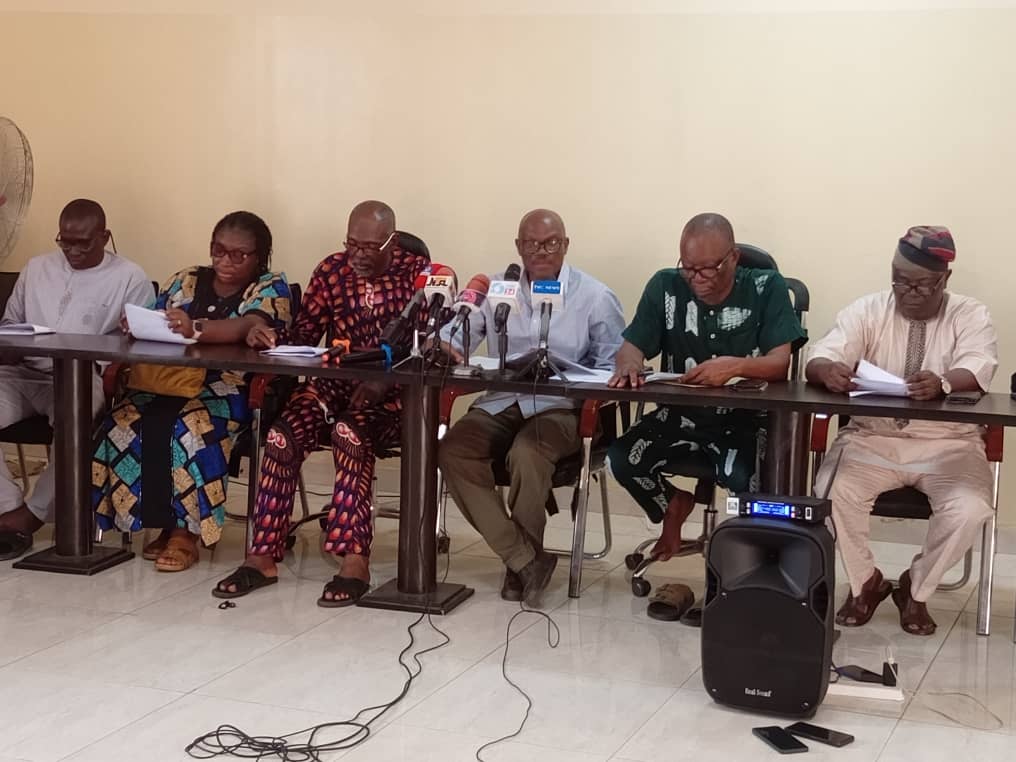
By David Torough, Abuja
The Academic Staff Union of Universities (ASUU) has once again raised the alarm over the Federal Government’s persistent failure to honour past agreements, warning that another nationwide strike may be imminent.
ASUU’s new President, Professor Chris Piwuna, at a press conference in Abuja on Friday criticised the government’s inaction on critical issues affecting Nigerian universities.
Piwuna demanded the immediate implementation of all Memoranda of Understanding (MoUs) and Memoranda of Action (MoAs) signed since 2013.
ASUU emphasised that fixing Nigeria requires fixing its universities, which are plagued by poor funding, stalled agreements and government neglect.
The Union also demanded the release of withheld salaries from the 2022 strike and payment to lecturers on part-time and sabbatical appointments affected by the IPPIS payroll system, while condemning political interference in university administration, unlawful appointments, and the undermining of institutional independence.
It further called for an education summit, proper implementation of past agreements, and a stop to the misuse of TETFund resources. It warned it will not remain passive while its members’ rights are trampled.
ASUU urged the government to resolve all outstanding issues to avoid further disruption. While open to dialogue, the union signaled potential industrial action if demands are ignored, reaffirming its commitment to the struggle for quality education.
“Almost three decades since Nigeria’s return to civilian governance, it is not yet Uhuru. The country is still pathetically trapped in the web of multifaceted political malfeasance graphically sign-posted by prebendal politics, mindless manipulation of electoral processes, brazen nepotism, and deliberate subversion of people’s will at every level of governance.
“The sum total of all these is that transparency and accountability have become rare commodities in the hands of the managers of the Nigerian state. Consequently, the generality of citizenry have become despondent, having lost hope and faith in government and its agencies.
“If given the desired attention, Nigeria’s universities should provide the solution ground to solving its multi-faceted and multi-dimensional problems. ASUU has remained focused in the struggle for improved funding and revitalization of these institutions.
“A starting point to achieve this noble goal is to prevail on government to address all outstanding issues in our previous engagements. This will create a conducive atmosphere for addressing the welfare issues of Nigerian academics for the optimal discharge of their statutory responsibilities as the think-tank of the country and mentors for future leaders in all aspects of national development. ASUU remains open to discussion in this respect.
“However, the Union would not continue to look helpless while the rights of its members are being trampled upon and washed away with reckless abandon.”
ASUU stated that the level of implementation of the 2009 FGN/ASUU Agreement is not encouraging, saying that although a few issues are partially implemented, many remain unaddressed.
These, it said include the conclusion of the renegotiation of the 2009 Agreement based on the Nimi Briggs Committee’s draft agreement of 2021; release of withheld three-and-a-half months’ salaries due to the 2022 strike; release of unpaid salaries for staff on sabbatical, part-time, and adjunct appointments affected by the Integrated Payroll and Personnel Information System (IPPIS); release of outstanding third-party deductions such as check-off dues and cooperative contributions; funding for the revitalization of public universities; payment of Earned Academic Allowances (EAA); concerns over the proliferation of universities by federal and state governments; non-constitution of some universities’ governing councils; and adoption of the University Transparency and Accountability Solution (UTAS) in place of IPPIS.
It noted that the government agreed to mainstream the EAA into salaries with the creation of an irregular allowance as a budget line in the 2026 Budget, after releasing N50 billion for the backlog and budgeting N29 billion for the payment of 2025 Earned Academic Allowances and agreed to release N150 billion as a revitalisation fund within four weeks from April 2025.
“However, we are still waiting for government to fulfil these promises. The Union has also reached an understanding with the Yayale Ahmed-led Committee, following the review of the report of the Nimi Briggs-led FGN-ASUU Renegotiation Committee in December 2024. Again, ASUU members have been left in limbo, waiting for the signing of an agreement five months after.
“Delegates at the UNIBEN National Delegates Conference exhaustively evaluated the government’s disposition in resolving outstanding issues with the Union and expressed regrets that nothing has significantly changed in the last two years.
“The irreducible minimum that can guarantee industrial harmony in the Nigerian University System (NUS) is for government to speedily address all outstanding issues including conclusion of the renegotiation of the 2009 FGN/ASUU Agreement, payment of the withheld three-and-a-half months’ salaries, release of the backlog of promotion arrears, payment of withheld salaries of sabbatical and part-time lecturers on account of not signing into the discredited IPPIS, and addressing the unjust victimization of ASUU leaders and members in some state universities.
“Beyond these, we demand a faithful implementation of all issues arising from our previous Memoranda of Understanding (MoUs) and Memoranda of Action (MoAs) government signed with ASUU since 2013.”
ASUU also called on state governors and visitors to these universities to, without further hesitation, resolve lingering issues and reinstate its members without delay in the interest of justice and industrial peace.
On the erosion of university autonomy, the union expressed deep concern. “ome recent developments in Nigeria’s public universities are of grave concern to our Union. We are discomfited by the ongoing attempts to completely erode the autonomy of public universities by the political class and the bureaucrats.”

